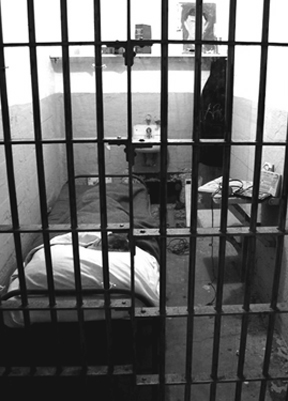With chances of a successful appeal weaker than a drugged-up prepubescent, Roman Polanski writes, “I can remain silent no longer!” And you know it’s true because he declares it ten times in a 900-word statement posted on the blog of French Philosopher Bernard-Henri Levy.
The man behind “Chinatown” and “The Ghost Writer” claims he was “justified” in fleeing the States, and points a withered, sticky finger at the crooked dead judge, the fame-seeking DA and the documentary filmmakers of “Roman Polanski: Wanted and Desired.” His penis’s need for under-aged tail, of course, remains unmentioned.
While the famed director has spent the last thirty years traveling Europe, creating films like “The Pianist” and “Death and the Maiden” (about a rape victim eager for revenge) and collecting awards, most (convicted) child molesters have a fairly different experience. Let’s take a look at how everyone else actually would be treated. California criminal defense attorney Leon J. Mezzetti Jr., who handles cases involving sex crimes, provides a little context for how similar crimes might be treated under today’s laws:
“There’s a tremendous amount of variability, but these are considered strikes. For example, under fourteen is a big deal in California 288(A). That statute says three, six, or eight years in prison. Then there’s 290, if there’s a conviction, which is sex registration. That’s the basic. It’s a straight felony. Now when you get to the other statutes, when you get to 288 (a), oral copulation, if it’s under fourteen, and [the victim is] more that ten years younger, then it’s three, six, or eight years. Threat of force is three, six, or eight years. Those are basic. Then if you have penetration, that’s three, six, or eight years. They can be consecutive terms. Normally, you take the top term on one, and then they take smaller terms for the others. The 261 (A) (3), persons prevented from resisting from any substance [like the quaalude Polanski gave the girl], that’s three, six, or eight years. 264 (A), the sentencing statute for forcible rape, is also three, six, or eight years”
Sounds like quite a bit. And that’s not even including additional time for fleeing the country. “Yeah, I guess they’d have some additional charges for that on top.” Mezzetti acknowledges. “Plus, it’s evidence. They can use that against you in court. The statutes were different back in the seventies, but that’s the sentencing today.”
Though difficult to predict the amount of time someone convicted today might spend in jail, “you can definitely see double-digit years in prison.”
And let’s consider the accommodations. While under house arrest, Polanski’s been staying at Milky Way, his luxurious Swiss chalet.
And here’s a U.S. prison cell, average size, including the toilet, is 8 feet wide, 8 feet high and twelve feet long.
While Polanski’s been hanging out with filmmakers and actors, most incarcerated child molesters have less enjoyable company in prison.
Being treated “like everyone else” might actually not be what you want, Mr. Polanski. Defense attorney Leon J. Mezzetti agrees: “Everyone else? He’d be better off at his Swiss house.”







a ‘statue’ is a sculpture. a ‘statute’ is the legal term.